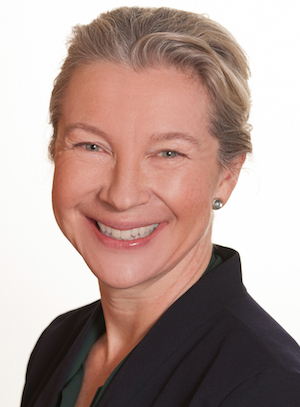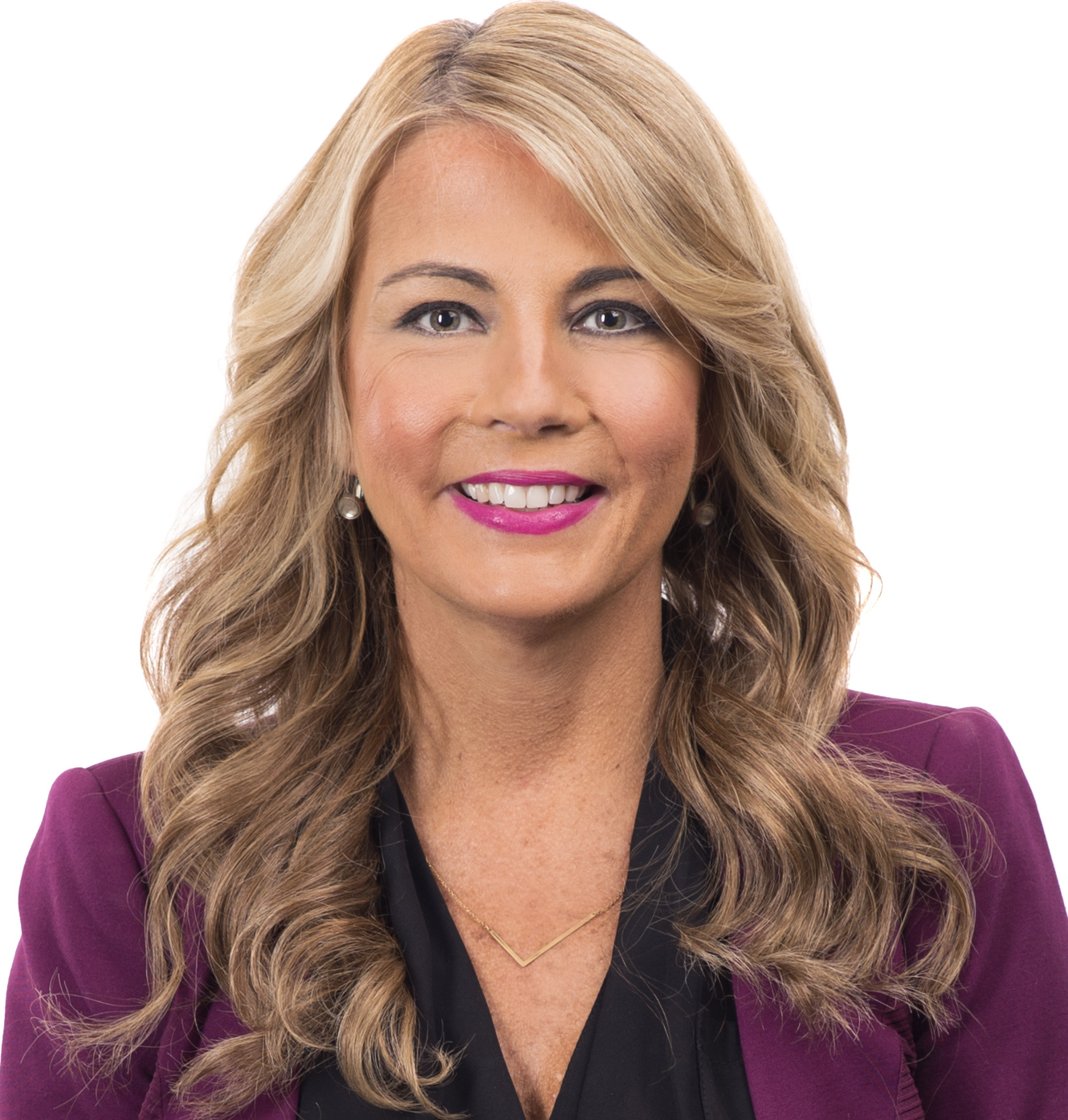Editor’s Note: This is the third in a series of articles. To read other articles in the series, click here: article 1, article 2.
Over the past three months, I interviewed 12 women who are trendsetters and innovators in the impact and sustainable finance sector. These women leaders are clear about today's capital market opportunities and risks. They are embracing both as the investment industry transitions toward a low carbon economy with greater emphasis on the economic value of intangible corporate assets and social impact enterprises.
These women are using their industry experience and leadership platforms to articulate a powerful message regarding the rapid growth in the use of non-financial data to drive investment performance and risk management.
Turning Problems Into First-To-Market Investment Opportunities
 In September 2017, one year after its launch, the Green Century MSCI International Index Fund, which invests in stocks included in the MSCI World ex USA SRI ex Fossils Fuels Index, had already surpassed its two-year AUM target. For Leslie Samuelrich, president of Green Century Capital Management since 2013, this accelerated pace of growth is the result of pent-up-demand from investors for greater diversification of ESG investment products. In my conversation with Samuelrich in December 2017, she was clear that “this first-to-market, international, fossil-fuel free index fund is providing a portfolio solution that investors and advisors have needed, and it is also performing well. That combination is attracting new advisory firms as early adopters, for which we are excited and grateful.”
In September 2017, one year after its launch, the Green Century MSCI International Index Fund, which invests in stocks included in the MSCI World ex USA SRI ex Fossils Fuels Index, had already surpassed its two-year AUM target. For Leslie Samuelrich, president of Green Century Capital Management since 2013, this accelerated pace of growth is the result of pent-up-demand from investors for greater diversification of ESG investment products. In my conversation with Samuelrich in December 2017, she was clear that “this first-to-market, international, fossil-fuel free index fund is providing a portfolio solution that investors and advisors have needed, and it is also performing well. That combination is attracting new advisory firms as early adopters, for which we are excited and grateful.”
Seeing problems as opportunities is a key reason Samuelrich has become a leader in the ESG/Impact investing industry. Assets under management (AUM) in the Green Century Funds have grown from $120 million to $550 million during her tenure. She is using the company’s mission related to its unique ownership structure to drive shareholder advocacy. Green Century Capital Management, the investment advisor of Green Century Funds, was founded in 1991 by a partnership of nonprofit environmental advocacy organizations, making it the only investment advisory firm with this ownership structure.
As president of an asset management firm owned by environmental advocacy organizations, Samuelrich is keenly aware of Green Century’s leadership role related to shareholder advocacy issues on behalf of the firm’s investor and advisor clients. The firm regularly leads and joins coalitions with other asset managers and institutional investors in advocacy campaigns that can span years of engagement with companies on some issues.
One ongoing campaign involves advocacy with the Indonesian government and corporations that own palm oil plantations in Indonesia and supply their product to household and personal products consumer companies globally. In 2015 Green Century spearheaded a letter from 60 investors with over $2 trillion in AUM to President Jokowi in support of a five-year moratorium prohibiting the issuance of new licenses to establish palm oil plantations and limiting the negative impacts on the archipelago nation’s environment and indigenous communities. The moratorium was formalized by the Indonesian government.
It was clear to me after our conversation that Samuelrich’s thinking about shareholder advocacy is deeply embedded in the values of ESG factor analysis. As she put it, “This work requires us to anticipate what companies are going to do, and not just address how their business model is impacting the environment, local economies and indigenous communities today.”
“This kind of successful advocacy inspires me to do what I can every day to help sustainable, ESG and impact investing grow as a percentage of professionally managed assets in the private and public markets,” Samuelrich said with anticipation. “I also think it’s important that firms like Green Century, which have developed the core values of this industry over many years, continue articulating them and stand firm on the importance of long-term company ownership and shareholder advocacy as guiding principles for investors and advisors.”
Embracing Diversity And Sustainability
 “I have never taken an existing job, and I never will”, said Patsy Doerr, global head, corporate responsibility and inclusion at Thomson Reuters. In our conversation last December, I got to hear how Doerr took a newly minted diversity job at Thomson Reuters and turned it into a full-blown sustainability platform throughout the organization, reporting directly to the chairman. After six years, she has not only developed a successful in-house diversity and inclusion program but is also in charge of corporate sustainability efforts within the firm as well as Thomson Reuters entire sustainability outreach effort to clients.
“I have never taken an existing job, and I never will”, said Patsy Doerr, global head, corporate responsibility and inclusion at Thomson Reuters. In our conversation last December, I got to hear how Doerr took a newly minted diversity job at Thomson Reuters and turned it into a full-blown sustainability platform throughout the organization, reporting directly to the chairman. After six years, she has not only developed a successful in-house diversity and inclusion program but is also in charge of corporate sustainability efforts within the firm as well as Thomson Reuters entire sustainability outreach effort to clients.
In one of her most influential initiatives, Doerr has incorporated all the firm’s sustainability metrics into the Thomson Reuters Eikon platform, which also provides information on 400 sustainability metrics for over 6,000 companies globally. According to Doerr, “Leveraging this capability allows Thomson Reuters to take a leadership role in sustainability impact with a direct correlation to the firm’s bottom line and drives sustainability deeper into the Thomson Reuters business culture.”
The Thomson Reuters D&I Index (Diversity & Inclusion), launched in 2016, ranks the top 6,000 publicly traded companies globally with the most inclusive and diverse workplaces, as measured by 24 metrics across four key categories: diversity, inclusion, people development and new controversies. Doerr emphasized that “this spans the awareness of embracing diversity in the workplace and the environmental impact of not only your business, but the entire supply chain of goods and services you purchase and the impact it has on your customers.” She believes that strategies like the D&I Index can promote the power of collective dialogue across the business community to create positive change.
Doerr and I talked about how to get this message across to the advisor community in a way that they can hear and value. Doerr emphasized that financial advisors should first “understand the size and impact of this industry. The $65-70 trillion wealth transfer to women and millennials over the next few decades will not go unnoticed by investors. It’s also important, concludes Doerr “to get the message out using the digital platforms that Thomson Reuters and other firms in the industry provide. Finally, and most importantly, said Doerr “have an active and loud voice related to your personal sustainable consumption habits. Walk the talk of your client conversations about ESG and impact investing every day.”
Paul Ellis founded Paul Ellis Consulting to work with financial advisors who want to integrate sustainable and impact investment strategies for their clients.